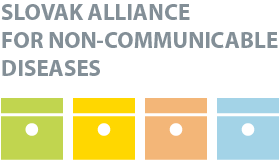—
HPI Network > HPI - Health Policy Institute > Analyses > Policy on Assisted Reproduction in Slovakia
Policy on Assisted Reproduction in Slovakia
Sunday, 16. June 2013, 16:27 — Slavica Karajičić
Trend of childless couples, like in many other countries all over Europe, is increasing in Slovakia. From year to year is accumulating more and more couples who have trouble with conceiving. Once and for most of them the only way to become a parent is assisted reproduction treatment. This paper tends to present current legal framework and analyze health and financial policy on infertility care in Slovakia which can be used in future policy and decision making process.
Aim of this paper is to give an overview of policy on assisted reproduction in the Slovak Republic. This paper can serve as guideline for couples looking for achieving offspring. Pointing out all advantages and disadvantages of infertility health policy, this analytical paper can help to policy and decision makers to perceive perspectives for policy and quality improvement.
Slovakia, likewise many European countries, is facing accelerated aging population problem with in the same time growing number of couples whose can not achieve offspring. Infertile couples can obtain assisted reproductive treatment in two public and six private hospitals in Slovakia. Slovak law, based on International declarations and European directives, allow in vitro fertilization (IVF) and intracytoplasmic sperm injection (ICSI) method as well as donation, while prohibit surrogacy, experimentation on the embryo and cloning. As time consuming treatment of infertility, cryopreservation is allowed as one of the possibility to rich offspring in shorten time and more convenient way for woman. Possibility to apply pre-implantation genetic diagnosis (PGD) rang Slovak legislation as one of the liberal in Europe.
Confidentiality and anonymity are binding but Slovakia is among countries that on request provide offspring with identifying information. While couples can not expect that IUI treatment will be covered by their insurance, IVF treatment will be fully and ICSI partly reimbursed. Success rate and outcomes are still followed on the micro (hospital) and mezzo level (health insurance). Luck of national national register and reporting system are seen as one of the main problem in terms of measuring outcomes as important part of infertility health policy. Establishing these institutions would help to policy and decision makers to compare Slovak outcomes and regulations achievement in infertility health care with other European countries.
Complete analysis Policy on Assisted Reproduction in Slovakia can be downloaded here:
News
The amendment of the Decree on emergency medical service
Health insurance companies returned over 400 thousand €
The HCSA received 1,647 complaints last year
A half million people will earn more
Most of public limited companies ended in the black
Debt of hospitals on premiums has grown to nearly € 105 MM
Slovak health care may miss € 250 million next year
Profits of HIC amounted to € 69 mil. last year
Owners of Dôvera paid out money but did not paid taxes
Like us on Facebook!
Our analyses
- 10 Years of Health Care Reform
- New University Hospital in Bratislava
- Understanding informal patient payments in Kosovo’s healthcare system
- Analysis of waiting times 2013
- Health Policy Basic Frameworks 2014-2016
- Analysis of informal payments in the health sector in Slovakia
- Serbia: Brief health system review
developed by enscope, s.r.o.

